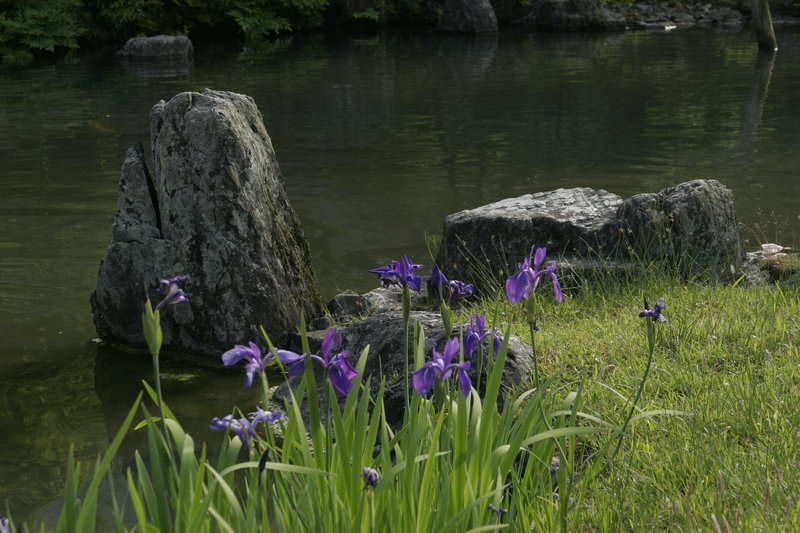It might be that mimicing nature is the intent of the designer of Tenryuji’s pond (perhaps to remind the viewer of his oneness with nature and the universal Buddha-nature), and nature is irregular. However, irregularity is also important to an excellent garden because an excellent garden is a sculpture. A good sculpture will present a well-formed, attractive scene; an excellent sculpture will present a different aspect of the scene at every angle. Likewise, every angle in an excellent Zen garden will present a unique view.
Another aspect of natural shorelines is a self-similar fractal-nature. This image is zoomed in slightly to the left of the previous picture. There is a qualitative similarity with the previous picture: the shoreline is still irregular, there are still boulders in qualitatively similar positions along the shoreline, and the pond is still visible. This fractal self-similarity also gives the garden depth, since it is interesting at several distances.
It should be noted that in both pictures the rocks have are interesting just by themselves, which is what allows the zoomed in picture to retain interest. To demonstrate this, imagine this image if the rocks were smooth, ovalish, and a uniform grey.
 Rocks at the edge of the pond at Tenryuji2 / 22 |